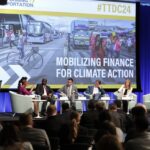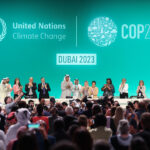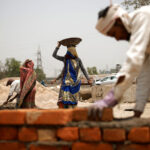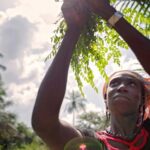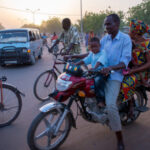Posts tagged with 'The World Bank'
If a picture can tell a whole story, then the image below of an intersection in Dar es Salaam, Tanzania, shows the past, present and future of global transformation in the transport sector. During Transforming Transportation 2024, which focused on ...

By David Waskow, Jennifer Layke, Nate Warszawski, Preety Bhandari, Gabrielle Swaby, Natalia Alayza, Jamal Srouji, Mario Julien Díaz, Edward Davey, Rogier van den Berg, Roman Czebiniak, Paige Langer and Nathan Cogswell on December 19, 2023
The COP28 climate talks began with a new fund to address the increasingly severe losses and damage vulnerable countries face from climate impacts and concluded with the first international agreement to tackle climate change’s main driver: fossil fuels. Those bookends to the Dubai summit ...

The past year registered record-shattering global temperatures. People around the world are already witnessing epic heat waves, wildfires and drought at 1.1 degrees C (2 degrees F) of global warming, compared to pre-industrial averages. With current policies putting the world on ...

In the Wadala neighborhood of Mumbai, representatives from Kigali, Durban and Mauritius filed into a low, yellow-walled room. They took their seats in rows equipped with desktop computers. Ordinarily, these desks would be filled with the staff responsible for tracking real-time ...

Earlier this year, India surpassed China to become the most populous country in the world. And with 68% of the world’s population projected to live in urban areas by 2050, India is expected to see an additional 416 million urban dwellers. ...

Today’s city leaders face a level of complexity and rapid pace of change that can be overwhelming. Particularly in developing countries, urbanization is unfolding quickly and often haphazardly. One in three urban residents worldwide lack adequate access to at least ...

Over the past two decades, Rwanda – the land of a thousand hills – has made remarkable strides: poverty has significantly declined and quality of life has improved. The service, industrial and agricultural sectors have flourished. Even in the aftermath ...

The conclusion of the Global Stocktake at COP28 in Dubai, United Arab Emirates this December will evaluate how much progress the international Paris Agreement on climate change has made in the fight against the climate crisis and what more is needed to ...

About two-thirds of the world’s population will live in cities by 2050. While cities are hubs of innovation and opportunity, the increasing pace of urbanization also exacerbates inequality, stresses infrastructure, and fuels climate change, air pollution and other environmental problems. The ...

After two years of unprecedented disruption to transport globally and two years of virtual conferences, Transforming Transportation returned to Washington, DC, March 14-15. More than 900 policymakers, experts and leaders in transport gathered at the World Bank Headquarters to explore ...

Transportation is a crucial enabler of economic development, providing people access to markets, employment, education, and health services. In addition to these development benefits, improving transport systems by making them cleaner, safer, more inclusive and more resilient accelerates climate action ...

Since COP27 wound down late last year (November 6-18), much of the post event commentary has centered on the fact that as observed by The Conversation, the gathering “failed to go beyond the 2021 Glasgow climate pact’s promise to phase down ...

What will 2023 hold for the environment and development? The end of 2022 certainly left us in an interesting — and concerning — place. The world’s three-year-old pandemic proved it was far from over, sickening millions and affecting economies. Global ...

Visit transformingtransportation.org to watch full sessions from the conference. And join the conversation on Twitter with #TTDC22. After COP26, transport has reached an important milestone in the global climate conversation. The electric revolution is underway and it’s now a centerpiece ...

Visit transformingtransportation.org to watch full sessions from the conference. And join the conversation on Twitter with #TTDC22. The case for decarbonizing transport cannot be clearer: it’s the fastest growing sector of emissions after industry, representing nearly a quarter of CO2 ...







